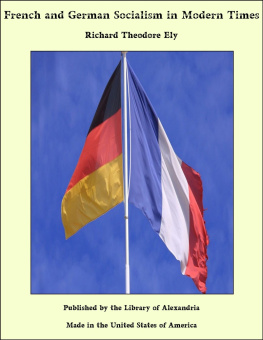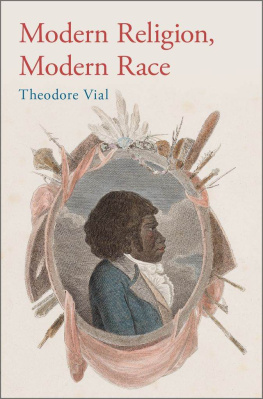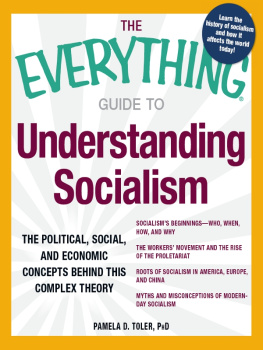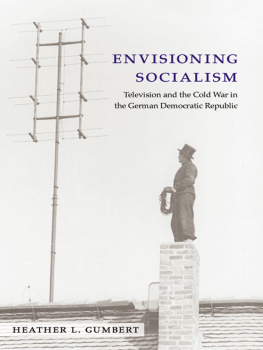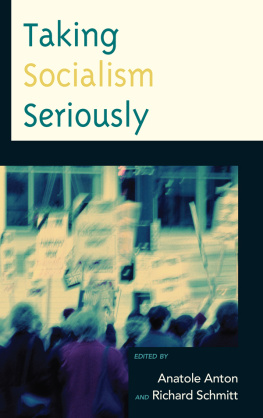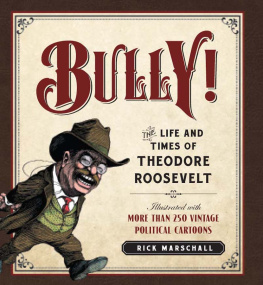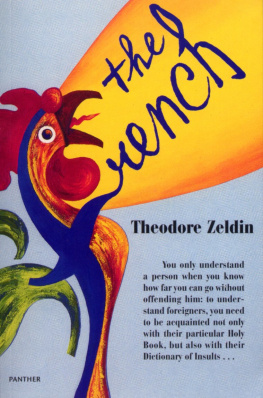FRENCH AND GERMAN
SOCIALISM IN MODERN TIMES
BY
RICHARD T. ELY, Ph.D. , LL.D.
PROFESSOR OF POLITICAL ECONOMY AND DIRECTOR OF THE SCHOOL
OF ECONOMICS, POLITICAL SCIENCE, AND HISTORY
IN THE UNIVERSITY OF WISCONSIN
NEW YORK AND LONDON
HARPER & BROTHERS PUBLISHERS
1900
Entered according to Act of Congress, in the year 1883, by
HARPER & BROTHERS,
In the Office of the Librarian of Congress, at Washington.
All rights reserved.
PREFATORY NOTE.
The publication of this volume is due to the friendly counsel of the Hon. Andrew D. White, president of Cornell University; a gentleman tireless in his efforts to encourage young men, and alive to every opportunity to speak fitting words of hope and cheer. Like many of the younger scholars of our country, I am indebted to him more than I can say.
The present work is based on lectures delivered in Baltimore before the students of the Johns Hopkins University, and in Ithaca before the students of Cornell University. Although these lectures have been thoroughly revised and, in fact, rewritten, traces of this origin will be found in a certain freedom of style and matter, which will, I trust, render the book neither less interesting nor less instructive.
My aim is to give a perfectly fair, impartial presentation of modern communism and socialism in their two strongholds, France and Germany. I believe that, in so doing, I am rendering a service to the friends of law and order.
Richard T. Ely.
Johns Hopkins University, Baltimore , August 3, 1883.
CHAPTER I.
THE FRENCH REVOLUTION AND THE LABORING CLASSES.
Communism and Socialism represent different and yet allied movements of theory and practice. They aim to improve the common lot of humanity, in particular that of the lower classes, in a radical manner and by the application of thoroughgoing measures. Now, when we utter the word improvement we indicate a desire to change, and consequently dissatisfaction with the state which is to be changed. This brings us at once to the common standing-ground of politico-economic reformers. They are one and all dissatisfied with the present condition of society. We have, therefore, in the first place, to examine the accusations which are brought against the social rgime of our time.
Complaints against the methods of producing and distributing wealth are not new; complaints of such a character as we hear at present, however, have originated since the middle of the eighteenth century. Before the French Revolution, dissatisfaction with the then existing order of things had been expressed often enough, and had even led to rebellion; but the economic life of Christendom was then different from what it is now, and consequently the discontent and the proposed measures of reform were not of the same nature. While the study of the condition of the laboring classes in ancient times and the Middle Ages is highly profitable, it is not necessary to go farther back than the latter part of the eighteenth century to obtain a tolerably accurate notion of existing socialism and communism.
A brief examination of the peculiarities of modern socialistic schemes will make this plain. One of these is to be found in the developed self-consciousness and awakened desires of the poor, taking their origin in democratic institutions and increased enlightenment. Another is the greater prominence given to capital in the present system of production. Disputes concerning capital-profit and wages now lead to communistic and socialistic schemes. Such war-cries, to use the words of Schffles Socialism as Presented by Kaufmann, as we find Lassalle raising against capital, would not have been even understood among the ancients and the oppressed classes of the Middle Ages. The promises held out by agitators to the masses now are: equal rights for all, no monopolies, liberty and equality for the people. Liberalism itself has paved the way to communism. The right of coalition among laborers for their own interests, liberty of the press, the extension of the suffrage, together with the facility of rapid and cheap inter-communication by post and telegraph, afford laborers the means for united action where their interests are at stake. The working-man of our day has a consciousness of his own power quite unparalleled by any of his compeers in former ages.
A third peculiarity of modern forms of communism and socialism is their cosmopolitan and practical character. All the plans of reformers, described in this work, were meant to be executed and to inaugurate a new era in the development of humanity. Attempts have been made, or are being made, to realize every one of them. Older socialistic schemes are of two kinds. Those of the first class were applied only to sects or small associations. Such were the communities of Buddhist and Christian monks and the villages of the Essenes in Judea. Those of the second class were dreamy and speculative. No attempt was made by their authors or any group of immediate disciples to regenerate the world by substituting them for existing social and economic organizations. Of this character were the Republic of Plato and the Utopia of Sir Thomas More. Even the speculations of French writers immediately preceding the Revolution, like Mably, Morelly, Brissot de Warville, and Jean Jacques Rousseau, were of this kind. Jean Brissot, for example, tickled the palates of those craving literary and philosophical sensation by declaring private property theft, and then defended private property in the National Convention of 1792; Morley says of him that he never thought of the subversion of society or its reorganization on a communistic basis, and that would hold generally of French socialistic thinkers before 1789. Modern socialists and communists, on the other hand, not only think of a reorganization of society, but work with might and main to accomplish it. This at once draws a broad line between them. This difference finds expression in new designations. A man without property is no longer what he was previous to the French Revolutionviz., a poor man; he is a proletarian, while the class to which he belongs are not called collectively the poor, but the proletariat.
Previous to the French Revolution an attempt had been made to embrace all the inhabitants of a state in some shape in a fixed and definite social organism. There were the ruling classes, consisting of the nobility and the clergy, and the commons. The latter were, to be sure, hewers of wood and carriers of water for the two higher estates, but they were bound to them in a certain manner. The feudal lord usually felt some sort of concern for the welfare of his vassals, looked after their interests, when these interests were attacked by others, and in a general way afforded them protection to be found only in his wealth and power. The greatest of the feudal lords, the sovereign, was the mighty father of all, and his government was often a shield to the weak and helpless. The third estate, the

